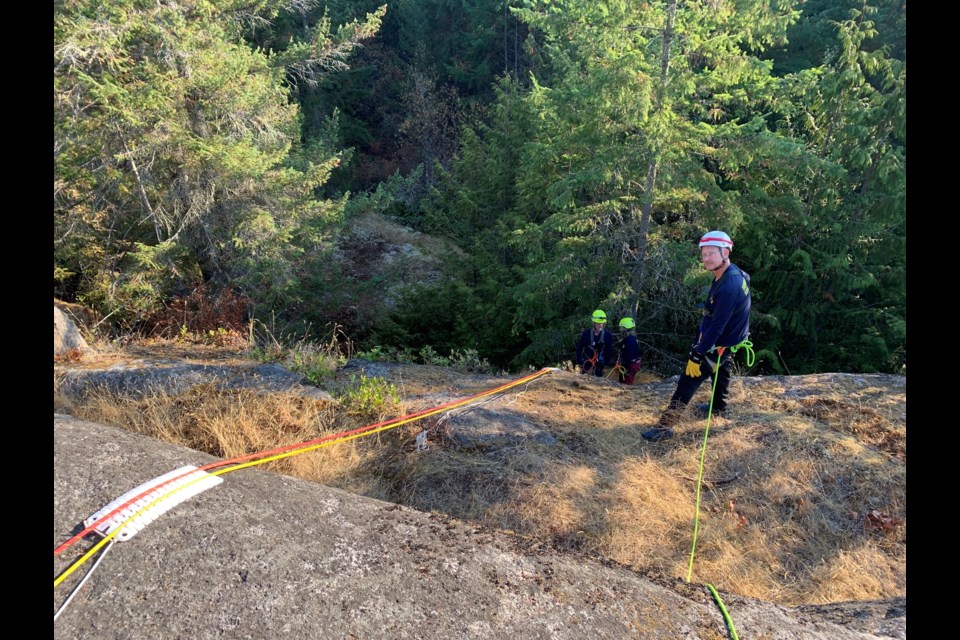After six years, Emergency Management BC launched a new Wildland Rope Rescue Team Leader training course this fall.
On the lower Sunshine Coast, the need for such training was pressing – the ground Search and Rescue (SAR) team rope leader retired in the spring of 2022 and so the team had to rely on off-Coast SAR groups for any high-angle rope rescues.
Learning the ropes
During the last weekend of October, a member of the Sunshine Coast volunteer group Will Logan completed the four-day course as one of the 17 participants from across the province.
Logan has volunteered with Sunshine Coast SAR since 2017 and is also one of the team’s swift water team leaders. His latest certification means the local ground SAR group will be able to perform most of the kinds of rope rescues they did previously.
Alec Tebbutt, the manager of Sunshine Coast SAR, specified that they’ll be able to resume slope rescues, which cover terrain at an angle of less than 70 degrees and make up most local responses.
The team will still be unable to perform high-angle rescues, which are used for even stepper terrain such as cliffs. They would need two more members trained as rope rescue team leaders. Several active members are interested in training to become leaders, but need to meet the prerequisites before the next course.
“Practically every team in the province in the same difficulty,” Tebbutt said, “Because the rope rescue team leader course has not been offered for more than six years… so there are a lot of teams in the province that need more to get people through that course.”
During the wait for training, between April and October, there were no rescues on the lower Sunshine Coast that required a high-angle rope rescue. Tebbutt said this is unusual, since the team usually receives between two and four calls per year that typically require rope rescues.
“It was really lucky,” Tebbutt said.
As they waited, Sunshine Coast SAR hired a top rope team instructor from Squamish to refresh the team’s skills during two weekends this fall. Both sessions were attended by about 10 of the volunteers, and were “extremely useful,” Tebbutt added.
In October, the Sunshine Coast SAR team also welcomed 14 new members-in-training — 10 women and four men — who are doing well, Tebbutt says. They will undergo six months of training and six months on probation before becoming full, active members.



